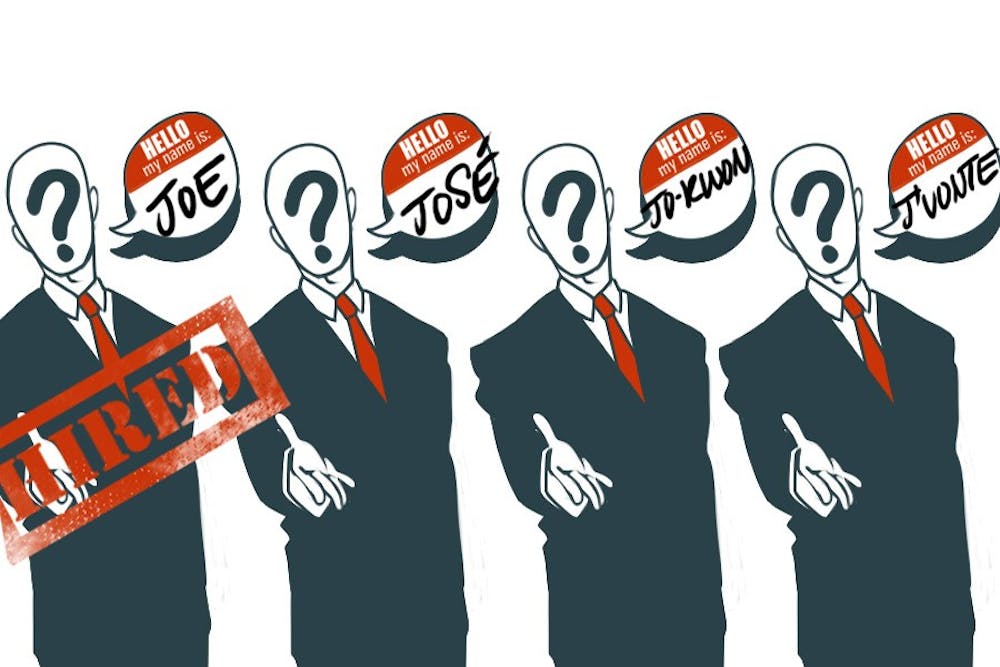It’s a tale as old as résumés.
José’s not hearing back from any potential employers, but with a quick ?s-rectomy, job offers start rolling in.
Seems Joe had something José never had: assumed whiteness.
This reportedly happened to José Zamora, who spent months getting the cold shoulder from employers until he switched to a whiter-sounding name. Zamora’s story quickly circulated news outlets earlier this month.
His is a story that is not altogether uncommon. In fact, his decision to change his name, while he might not have known, has been backed up by research that shows having black, Latino or female-sounding names can negatively affect job prospects.
A 2003 study by University of Chicago Graduate School of Business student Marianne Bertrand showed that stereotypically black-sounding names such as “Lakisha Washington” or “Jamal Jones” were 50 percent less likely to get an interview than applicants with names such as “Emily Walsh” or “Brendan Baker,” despite having similar qualifications.
Worse still, black applicants hardly benefited from having more experience and skills.
Higher-qualified white applicants received 30 percent more calls than lesser-qualified white applicants. Higher-qualified black applicants only enjoyed a 9-percent boost in calls.
A 2012 study tested gender bias in the science community, asking scientists to evaluate an aspiring graduate student ?applying for a lab manager position.
The résumés were exactly the same, ?except for the name at the top.
Half the scientists were faced with a “male” applicant and half with a “female” applicant.
Though the résumés were identical, the results were not.
The female applicant was judged significantly less competent and less hireable, and the scientists were much more reluctant to consider mentoring the female applicant.
Not only that, her suggested starting salary was about $4,000 less than her male counterpart’s.
This particular study was limited to the science community.
However, it is not unreasonable to guess that similar biases occur in other industries, especially considering that just a year out of college, women already make 18-percent less than men, on average.
This data only reaffirms the common notion that people of color have to work twice as hard to get half as far in the ?United States.
But refusing to even let people of color and women — and heaven help you if you are a woman of color — in the door doesn’t just hurt these applicants. ?Employers are missing out on talented workers who might bring a new ?perspective to the table.
It doesn’t do much for our society, either. Entrenched racism can trap people of color in a vicious cycle.
Potentially talented workers can’t ?obtain good experience, which leads to gaps on their résumés and unimpressive jobs that make better jobs harder to land.
Gender biases can have a similar effect, particularly in more male-dominated industries such as science, technology, engineering and mathematics fields.
It’s hard to pull yourself up by the bootstraps when you aren’t given strappy boots in the first place.
Employers need to do better. Have human resources give those in charge of hiring decisions exposure to data that ?indicate unconscious biases.
Come up with mechanisms to limit racist gatekeeping.
Find ways to avoid punishing applicants for simply being themselves.
Creating a job market where people feel the need to change their names and résumés to sound more like white men is not a viable solution.




